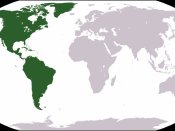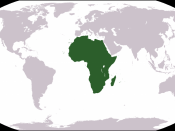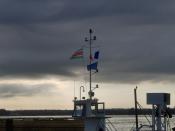The ratio of population between Europe and Africa declined and it is believed that this caused a significant impact on African civilizations. During the fifteen century, Africa became one of the major location for European explorers, mainly Portuguese. For centuries, Europeans traded gold and spices, but during the fifteen century, one of the most important change occurred; a new type of trade began; influenced by the Portuguese and starting the most shameful period of history. It quickly expanded, and with the time more countries joined.
This new type of trade was, what we today recall, as slavery which had major impacts on developments of the countries involved: Spain, Portugal, and later England.
The European trade had its origins in Mali, around 1450, when the famous leader Mansa Musa converted to Islam, and on his way to the Mecca, one of the five pilasters that a Muslim has to follow, donated so much gold that Europeans from all the Western heard of the amount; which stimulated the eyes of the many Europeans who were looking for gold.
Once the Portuguese arrived, for example Henry the Navigator which founded the city of Sagres, their main goal was to explore and to find large quantities of gold. By the fifteen century the Portuguese achieved both of their goals, but there was something more that they wanted: maybe a better economy or maybe a faster way to earn money. With these new goals in their minds, the Portuguese started to occupy most of Africa, and started creating commerce between the two.
By the fifteen century the Portuguese had established a well organized trading system with most of the Southern parts of Africa, including Cape of Good Hope in 1488, the southernmost trip. The trade was similar throughout most of the country. The main goods...


